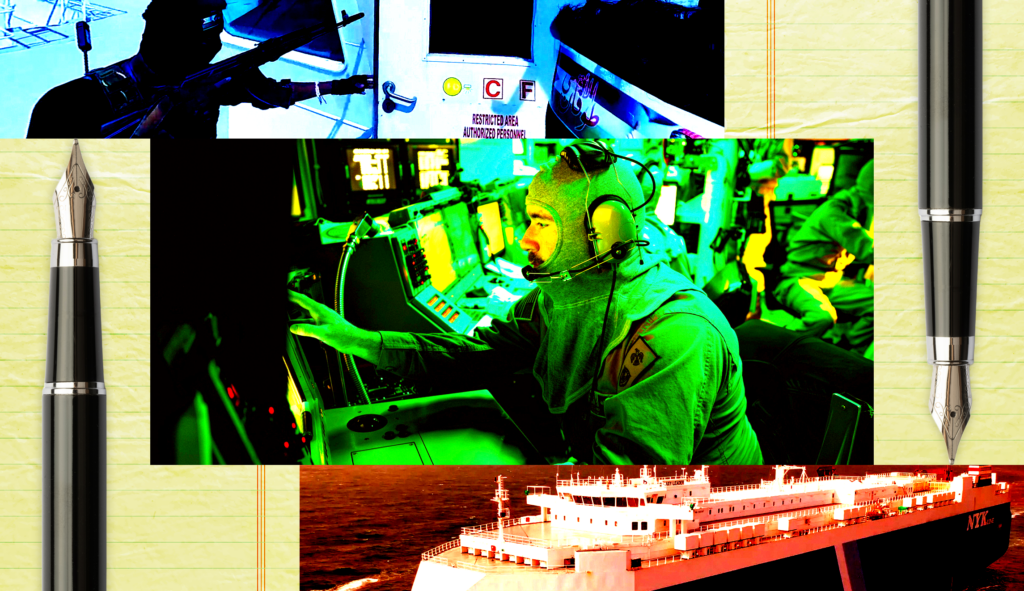

When Hamas massacred some 1,200 soldiers and civilians in Israel, Jew haters here at home took to social media to celebrate the terrorists, branding what became the most deadly day of antisemitic violence since the Holocaust mere “decolonization.”
“What did y’all think decolonization meant?” New York-based writer Najma Sharif wrote in an X post that has since garnered 100,000 likes. “Vibes? papers? essays? losers.”
Now that the United States has tolerated nearly four months of those same terrorist toadies shutting down every road, bridge, and airport entrance they can find in protest of America’s assistance in Israel’s counteroffensive, it would be wise to remind these TikTok-loving, fast-food-eating, fast-fashion-wearing terrorists-in-training that the might of the American military is not just a matter of aiding our allies. But rather: What did they think global prosperity, free trade, and two-day shipping for the latest junk trending on social media meant? Vibes? Papers? Essays?
The U.S. has obvious long-term strategic interests in aiding the Israelis, not just to help our only diplomatic ally in the Middle East but also to prevent aggression elsewhere in the world, including deterring the Chinese from invading Taiwan. But as a matter of pure self-interest, America and its allies must make that point especially clear to the broader Middle East, particularly the parts that comprise the epicenter of global shipping, which is under increasing control by the medieval pirates in Yemen also known as the Hamas- and Iran-allied Houthis. There’s a reason why the U.S.-led alliance with the United Kingdom, Australia, Bahrain, Canada, Denmark, Greece, the Netherlands, Norway, Singapore, and 10 anonymous allies is called “Operation Prosperity Guardian,” not “Operation Democracy Guardian.”
Since about a week after the Oct. 7 Hamas attacks on Israel, the Iranian-funded Houthis have deployed missiles and unmanned aerial vehicles on both southern Israel and international shipping. At press time, the Houthis have launched a total of 26 attacks on commercial shipping lanes, with Operation Prosperity Guardian successfully shooting down ballistics.
But the U.S. and the rest of the West have refused to shoot down Houthi ships altogether, and given the havoc wreaked on global markets, it’s high time that Operation Prosperity Guardian starts turning these pirate ships into fish food as deterrence. The obvious lack thereof so far is indeed becoming an increasing threat to matters of global prosperity.
Considering that 15% of all seaborne trade traverses the Red Sea and 30% of global container ship volume passes through the Suez Canal, the economic losses wrought by Western weakness in response to Houthi aggression could mount to the tens of billions of dollars. Already, the price of container shipping between Asia and Europe has about tripled, and Drewry’s World Container Index is up a shocking 61% for the start of the year. Given the basic geography of Houthi attacks on ships in the Bab-el-Mandeb Straight, running between Yemen to the east and the African continent to the west, it’s easy to see how.
Take the route between Rotterdam and Singapore. While passing through the Suez Canal takes an average of 26 days and 8,500 nautical miles, avoiding the Red Sea and instead sailing around the Cape of Good Hope takes 36 days and nearly 12,000 nautical miles, which the Council on Foreign Relations estimated requires an extra $1 million just in additional fuel costs.
Sinking the Houthi fleet isn’t a mere matter of standing with Israel. Rather, it’s the only way to restore the global supply chain that has formed the backbone of the post-world order and avoid the sort of inflation that spun out of Russia’s war on Ukraine.
CLICK HERE TO READ MORE FROM THE WASHINGTON EXAMINER
Recall that the entire global trade infrastructure was developed out of the 1944 Bretton Woods Agreement, which laid the groundwork for the International Monetary Fund, International Trade Organization, and World Bank, and that new world order was firmly enforced by the enormous military might of the winners of World War II in general and the U.S. military in particular.
It’s true that the West can effectively deploy the soft power of icing out our enemies from favorable multilateral trade deals, and if our adversaries continue to run afoul of our standards, harder power can include slapping offending powers with sanctions or tariffs. Yet the final bulwark, or the hardest power the U.S. must deploy, is military force to ensure global trade is not disrupted.






